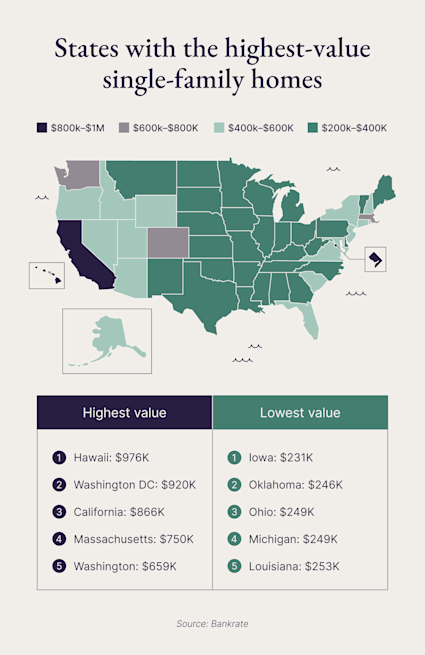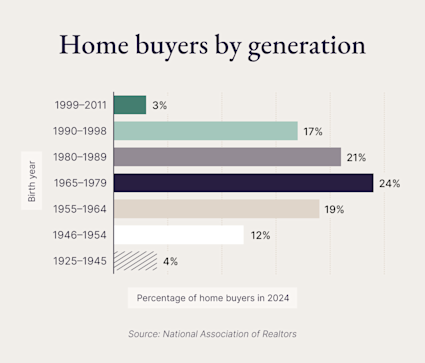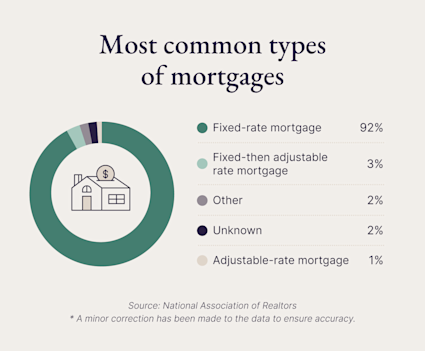Types of interior design: Emerging trends for 2026
Understanding the different types of interior design can make decorating a home feel far less overwhelming. While design decisions can seem daunting at first, a little research and a grasp of foundational interior design principles can go a long way. With the right approach, you may be surprised at how confidently you can bring a dream room, dream home, or dream Use this guide to understand the seven elements of interior design, and discover the home design trends shaping 2026, with insights from Pacaso designers to inspire your next space.
The 7 elements of interior design explained If you’re wondering how to decorate a new home or how to update an existing space, the best place to start is with the basic elements of interior design. Understanding these elements gives you the foundation to design any space with intention and confidence. These core principles help bring balance, function, and personality to a room, regardless of the types of interior design you’re drawn to or plan to incorporate.
Below are seven essential elements to keep in mind as you create a cohesive, thoughtfully designed space. 5 trending interior design styles for 2026 With so many emerging home design trends, it can be difficult to decide how to decorate a new home. While personal taste should always lead the way, certain types of interior design continue to stand out for their popularity and staying power. To better understand the types of interior design gaining momentum this year, we spoke with Pacaso’s interior design professionals, Kyra Edwards and Camille Selis for their expert perspective on the home trends and design styles shaping homes in 2026. 1. Color-forward Color-forward interior design embraces rich, earthy hues and immersive palettes to create emotionally resonant spaces. In 2026, designers are moving away from safe neutrals and cool greys in favor of deeper, grounding tones like ochre, olive, earthy greens, muddy blues, rich plums, and terracotta-inspired red-oranges. This style often incorporates color-drenching — where walls, ceilings, trim, and even furniture share a cohesive hue — resulting in spaces that feel bold, intentional, and deeply atmospheric rather than decorative.
2. Textured maximalism & “livable luxury” As stark minimalism fades, textured maximalism is emerging as one of the more welcoming types of interior design, blending warmth, comfort, and layered design. These interiors balance richness with restraint, pairing mixed textures and patterns with timeless, high-quality furnishings. Often described as “liveable luxury,” this style prioritizes craftsmanship, comfort, and longevity over flash or trend-driven decor. The result is a space that feels curated and refined, yet relaxed enough for everyday living – perfect for vacation home design. 3. Organic & sculptural design
Organic and sculptural interior design emphasizes soft forms, flowing silhouettes, and natural materials. Furniture and decor feature curved edges, irregular contours, and handcrafted details that feel tactile and grounded. Materials like wood, stone, rattan, and clay anchor these spaces, celebrating visible grain and natural imperfections. This approach brings a sense of calm and movement, creating interiors that feel both modern and deeply connected to nature. 4. Heritage & character-filled interiors Heritage-inspired interiors focus on storytelling, individuality, and craftsmanship. Rather than uniform or mass-produced décor, these spaces feel layered and personal, incorporating antiques, vintage finds, and artisanal details. This style reflects a growing desire for homes that feel collected over time. It favors authenticity and character over perfection, creating interiors that feel meaningful and distinctly personal.
5. Intentional, wellness-driven spaces
In 2026, interior design is increasingly focused on how a space makes you feel, not just how it looks. Intentional interiors are designed around wellness, comfort, and flexibility, supporting real life through thoughtful layouts and purposeful zones. These spaces often include cozy reading nooks, adaptable rooms, and layered lighting to create a calming, restorative atmosphere. Every element serves both function and mood.
Other types of interior design Trends come and go, but discovering an interior design style that reflects your personal taste and stands the test of time is key to creating a space that feels like home. These timeless interior design styles offer inspiration for spaces you’ll love for years to come, whether in your primary residence or second home. Bohemian style, often shortened as “boho,” pulls together a variety of textures and patterns to create an effortless look. While boho interiors mix bold patterns, they’re grounded by key neutrals with simple pops of color. There’s a lot of texture in boho style, often using materials like rattan which adds a unique look that doesn’t clash with bold patterns. 2. Cottage Cottage interiors combine classic and rustic features to evoke a simpler time, making this style perfect for a second home. Features like wood furnishings and natural stone help pull cottage spaces together, but you can transform any space into a cottage with details like handmade textiles or vintage furniture. 3. Mid-Century Modern Mid-Century Modern design is one of the more well-known home design trends that’s persisted over the decades. Characterized by its mix of lines and soft forms, it shows what people thought the future would look like, making this a timeless choice. Choose bold Mid-Century Modern furniture and blend other types of interior design into your decor to keep the perfect balance of old and new. 4. Coastal Coastal style is a popular choice for coastal or The key here is to lean into aquatic-themed decor so you always feel the same peace of lounging by the waves, even if the sand’s not right on your doorstep. 5. Art Deco
Art deco is characterized by its use of geometric patterns, jewel tones and accentuating lines. It’s common to fill the space with many statement pieces by using their similar patterns to tie an interior together. Another distinctive feature is interesting lighting like geometric chandeliers or floor lamps. While many interiors are colorful, they’ll usually stick to just one contrasting color to keep the color from overwhelming the space. 6. Minimalist This type of interior design is characterized by bright spaces, simple decor and open concept interiors. Usually, these interiors are mostly white to maintain a clean look. The minimalist style is about keeping things simple, so less is truly more. Your space doesn’t need to be completely devoid of decor, but it shouldn’t feel cluttered. Focus on creating clean lines so there’s nothing to distract you from your peace. 7. Modern Modern interior design has a lot of similarities to minimalism, but it typically features more decor and pops of color. It still has the clean, bright feel of a minimalist space, but the inclusion of some more decor can help it feel more like home for people who aren't ready to commit to a minimalist lifestyle. Still, 8. Traditional
The traditional style has remained one of the most popular types of interior design for centuries. It draws inspiration from European elements such as rich textiles and carved wood. Many home design elements that come from traditional interior design — like crown molding — are desirable for any homeowner. These interiors feature an array of textures, from grand window furnishings to detailed woodwork. Choose furniture that showcases wood grain in rich tones to keep this style feeling cozy and personal. 9. Transitional Transitional interior design warms up modern design with its traditional influences. Spaces like this typically feature traditional style furniture. Then, the style is elevated with modern touches like geometric lamps or a gallery wall. Transitional interiors often use neutral tones and muted color palettes. 10. French Country
French country interior design combines rococo and rustic design, which were the two most popular styles from 17th- and 18th-century France. Rococo design features pastels for a lighthearted extravagance, while rustic design features lots of dark wood and rich furnishings like furs. As a result, French country is known for its mix of dark wood furnishings and pastel textiles. You’ll often see delicate patterns, such as florals contrasted against darker furnished features. 11. Scandinavian
Scandinavian interior design style has its roots throughout Scandinavia but is usually attributed to the Danish Selskabet for Dekorativ Kunst — or the Danish Company for Decorative Arts. Scandinavian style is a twist on modern design that adds some organic elements. This type of interior design departs from the elements that can make the modern style feel sterile to some people. Liven up your Scandinavian space by integrating natural materials like rattan and rich textures like a faux fur throw. Another key feature of Scandinavian design is its use of color; muted colors like mauves and olive greens are common. 12. Industrial
Industrial design is characterized by exposed wood, brick and metal elements with little color. It works well in open or lofted spaces with large windows and lots of natural light. Industrial design mixes a vintage and modern feel. Its furniture and accessories typically have modern shapes but vintage-feeling materials like unpolished metal or 13. Eclectic
Eclectic design refers to spaces that take influence from multiple design styles. While it originally referred to combining more traditional styles, many people add modern touches to their eclectic designs. Eclectic interior design is all about building your ideal space, so feel free to play around and choose your favorite characteristics of multiple styles to 14. Modern Farmhouse
As the name suggests, modern farmhouse style combines elements from both the cottage and modern styles. It brings all of the traditional comfort and coziness and adds a modern twist, integrating clean lined and a bright feel. This style bridges the gap for people who find modern design too clinical and farmhouse design too traditional for their tastes. Whether you’re styling your primary or secondary home, it’s important to have a space where you can relax and enjoy yourself. Exploring the different types of interior design and discovering what resonates with you is just one way to Pacaso’s approach to interior design Thanks to Pacaso’s team of designers, each Pacaso home is expertly designed and furnished to strike the perfect balance between trend-forward style and timeless appeal. While it reflects the latest home trends and design standards trends, it also maintains enduring elegance and comfort, ensuring your home looks beautiful today and continues to feel fresh for years to come.
The Pacaso home design process With Pacaso, there is no need to worry about how to decorate a new home. Pacaso’s in‑house design team takes a holistic and highly intentional approach to This thoughtful approach ensures that every Pacaso home feels relaxing, cohesive, and uniquely tailored to its setting, so owners can step inside and instantly feel at ease.
Design Certified Every Pacaso home is Designing your home in your preferred style Discovering your unique interior design style is an exciting journey, but creating a cohesive, beautifully curated home often requires an understanding of the types of interior design, thoughtful planning — and often, professional guidance. Working with an If you’re considering a second home, innovative solutions like Pacaso’s Explore Pacaso’s
Read












